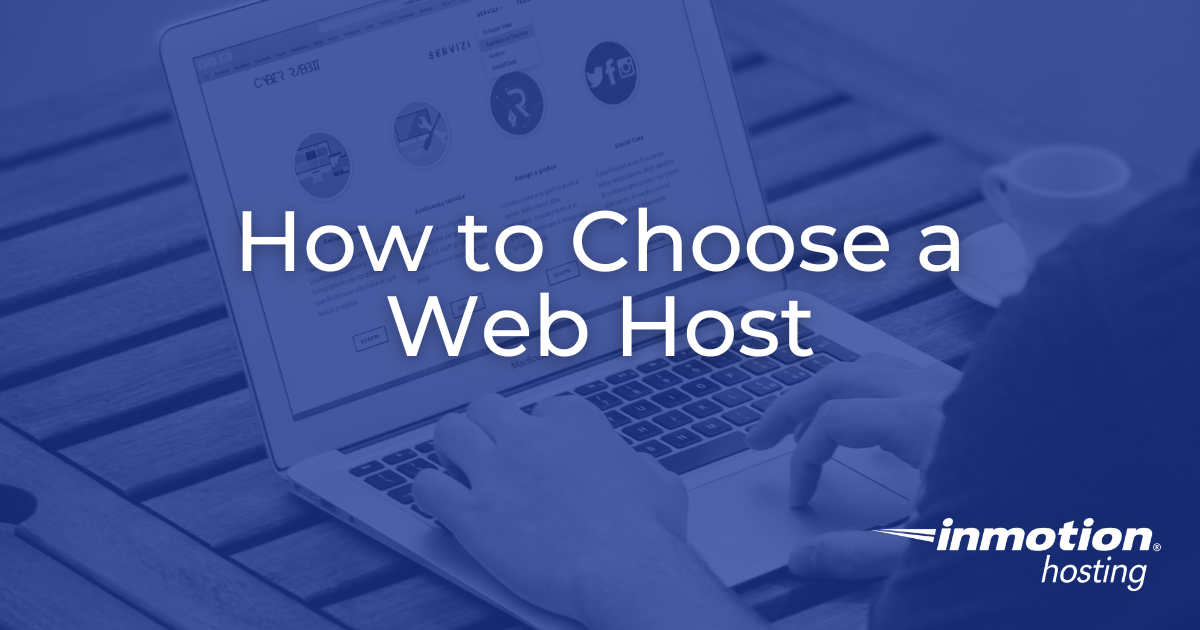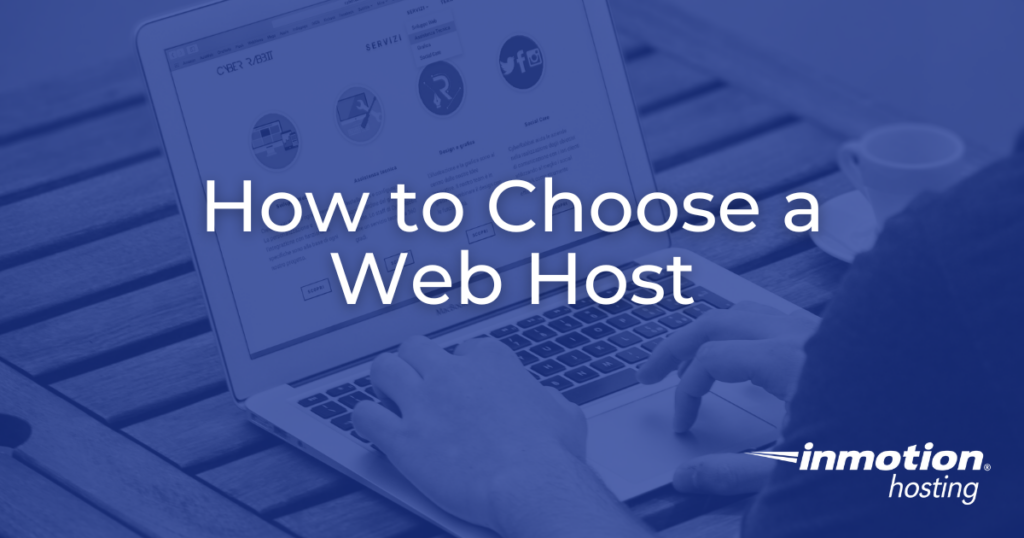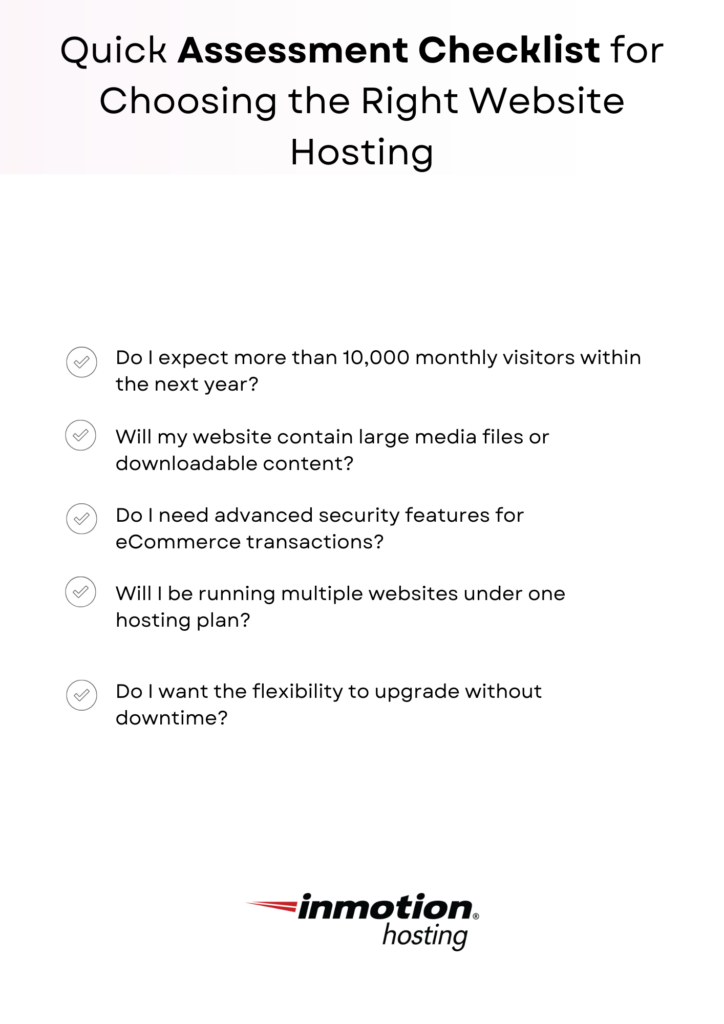
How to Choose A Web Host For Your Business

Selecting the right web hosting for your business requires comparing different hosting types like shared, VPS, and dedicated servers. Assess your technical requirements including storage space, bandwidth needs, and performance expectations. Watch for hidden costs in renewal rates and add-on services. Ensure your hosting provider offers strong security features, reliable customer support, and scalability options as your business grows. The perfect web host balances performance, price, and future-proof features to keep your website running smoothly.
There are thousands of web hosting companies in the world. How do you decide which one is right for your business?
No matter what type of business you’re considering, the right hosting provider ensures your site stays fast, secure, and available to customers 24/7.
And site speed is critical to your bottom line. Research shows that a site with a 1-second load time has a 3x higher conversion rate than a site that loads in 5 seconds.
This guide will walk you through all you need to know in choosing a web hosting provider that supports your business goals—without surprises or compromises.
Understanding Your Website Needs Before Choosing a Host
Choosing the right web hosting provider isn’t just about picking a plan with the lowest price tag. To avoid costly mistakes, you need to align your hosting choice with your website’s technical demands and long-term business goals.
This section will help you assess your website’s needs so you can start with the right hosting solution from day one.
Assessing Your Technical Requirements
Before selecting a hosting plan, consider how your website will function on a day-to-day basis. Your choice should support both your current traffic levels and future growth. Look out for the following:
- Traffic Volume. Will you be running a small business website with a few hundred visitors per month, or do you anticipate thousands of daily visitors? Shared hosting may work for a low-traffic site, but high-traffic websites need VPS or dedicated hosting for optimal performance.
- Storage and Bandwidth. Websites with high-resolution images, videos, or downloadable files require more storage and bandwidth. A lifestyle blog might use less than 1 GB of storage, while an eCommerce site with hundreds of products may need 10 GB or more.
- Application and CMS Compatibility. If you’re building your site with WordPress, Magento, or another CMS, ensure the hosting provider offers one-click installations, PHP version support, and optimized infrastructure. Some platforms, like WooCommerce, require additional server resources to run smoothly.
Matching Your Business Goals to Hosting Types
Beyond technical specifications, your hosting should align with your business strategy.
| Goal | Solution |
|---|---|
| Are you launching a personal blog or a small business website? | A shared hosting plan might be enough—unless you anticipate high traffic growth. |
| Do you plan to sell products online? | Consider VPS hosting for better performance, especially if your site processes online payments or has a large product catalog. |
| Are you running a high-traffic business site or SaaS platform? | Dedicated or cloud hosting ensures faster load times, enhanced security, and scalable infrastructure. |
Quick Assessment Checklist
To determine the right hosting type, work through the questions in the graphic below:

If you answered yes to most of these questions, starting with shared hosting may not be the best choice. VPS or dedicated hosting can provide the stability and growth potential your business needs.
Types of Web Hosting Explained
Not all web hosting is created equal. The right hosting type depends on your website’s traffic, performance needs, security requirements, and growth plans. This section breaks down the four main types of hosting—shared, VPS, dedicated, and cloud—so you can make an informed choice.
Shared Hosting
Shared hosting is the most affordable and beginner-friendly option, making it a common starting point for small websites and personal projects.
It is low-cost and no server management is required. However, shared resources can lead to slowdowns. And it’s difficult to scale with significant traffic growth.
VPS Hosting
Virtual Private Server (VPS) hosting offers a balance between affordability and performance. It provides dedicated resources within a shared environment, making it an excellent upgrade from shared hosting.
VPS Hosting guarantees greater speed and reliability than shared hosting. You get more control over server settings, and scaling without site crashes is easier.
Dedicated Servers
For large enterprises and high-traffic websites, dedicated server hosting offers unmatched performance and security. While dedicated hosting costs more, the investment pays off in higher uptime, security, and business credibility, particularly for customer-facing platforms
Cloud Hosting
Cloud hosting leverages multiple servers to create a flexible and high-performance hosting environment. Instead of relying on a single server, your website data is distributed across a network of interconnected servers, reducing downtime risks.
In general, cloud hosting is better suited to handle traffic spikes than traditional hosting.
When to Start with VPS Instead of Shared Hosting
While shared hosting is a great starting point, some businesses should skip it entirely and go straight to VPS.
For example, if you’re comfortable with minor technical tasks, VPS offers better control and performance. Also, while shared hosting is cheaper, VPS hosting can save you money in the long run by preventing downtime and resource limitations.
Situations where VPS makes more sense:
- Running an online store with payment processing
- Hosting a high-traffic blog or content-heavy website
- Running multiple websites under one account
Critical Hosting Features That Impact SEO
Your choice of web hosting directly affects your site’s search engine rankings. This section covers some features your web host needs for the best performance on search engines.
Server Response Time and Core Web Vitals
Google has made it clear: faster websites rank higher. One of the key speed metrics Google considers is server response time, which measures how quickly a hosting server processes a request and delivers the first byte of data to a browser.
InMotion’s UltraStack configuration is designed for faster TTFB, leveraging SSD storage and caching optimizations to improve server response times.
SSL Certificates and Security Features
Security is a ranking factor and a user trust signal. Google prioritizes websites with SSL or TSL encryption, and unsecured sites (HTTP) may even display warning messages in browsers—driving visitors away.
All InMotion Hosting plans include free SSL certificates, helping you secure your site(s) without additional costs.
Mobile Optimization Support
In 2025, mobile devices account for over 60% of the internet’s traffic. If your site isn’t optimized for mobile, you’re losing visitors and rankings.
Hence, choose a web hosting provider with ample support for your site’s mobile version.
International and Compliance Considerations
Whether you run an international business or operate in a regulated industry, your hosting provider should support your security and compliance needs.
Global Server Locations and CDN Support
Your website’s physical server location affects its loading speed and user experience. This means that websites hosted closer to their audience load significantly faster. A CDN (Content Delivery Network) helps by storing copies of your website on multiple servers worldwide. Users automatically connect to the closest server, reducing delays. Look for hosts that support multiple data center locations to optimize regional performance.
Data Protection and Regulatory Compliance
If you handle customer data, your hosting provider must help you comply with global privacy laws. Failure to meet regulations can lead to hefty penalties and reputational damage.
Key regulations to know include:
- GDPR (General Data Protection Regulation) – Applies to websites handling EU user data, requiring strict privacy controls and consent management.
- CCPA (California Consumer Privacy Act) – Similar to GDPR, but specific to California residents.
- PCI DSS (Payment Card Industry Data Security Standard) – Mandatory for eCommerce sites processing online payments.
- HIPAA (Health Insurance Portability and Accountability Act) – Protects health-related data for businesses in healthcare.
When choosing a hosting provider, look for security certifications, and data center locations that align with regulatory requirements (e.g., EU-based servers for GDPR compliance).
Hidden Costs and Contract Details to Watch For
Many web hosting providers lure customers in with low introductory prices, only to raise rates significantly upon renewal. To manage renewal costs, check the renewal pricing upfront—never assume the initial rate will last. Also, consider multi-year plans to lock in lower pricing for a longer period.
InMotion Hosting offers clear, upfront pricing with no surprise increases. The advertised price includes key features at no extra cost, such as free SSL certificates, site migrations, and SSD storage.
Understanding the True Cost of Hosting
Beyond base pricing, many hosts use add-ons and upsells to increase costs over time.
Factors that drive up costs:
- Introductory vs. renewal pricing. This is the difference between what you pay now and what you’ll pay later.
- Add-on fees. Some hosts charge extra for basic features like backups, SSL certificates, and email hosting.
- Upsells at checkout. Many providers push premium security, performance upgrades, and “essential” services that should already be included.
The typical renewal price increase across major hosts is 100–150%, often due to added service costs that weren’t disclosed at sign-up.
Learn more about the Cost of Web Hosting.
Contract Terms That Could Affect Your Business
Before signing up, carefully review the terms of service to avoid restrictive policies. Vital contract terms to watch for include:
- Cancellation policies. Some hosts make it difficult to cancel, requiring advance notice or charging early termination fees.
- Auto-renewal terms. Many providers automatically renew plans at full price without prior notice.
- Resource limitation penalties. Some budget hosting plans throttle or suspend accounts if they exceed CPU or bandwidth limits, leading to unexpected downtime or forced upgrades.
InMotion Hosting doesn’t bury customers in hidden fees or restrictive contracts. Plans include clear terms with no surprise auto-renewal price hikes.
Evaluating Support Quality Before You Commit
When technical issues arise, responsive and knowledgeable customer support can mean the difference between a quick fix and prolonged downtime. Many hosting providers advertise 24/7 support, but the quality and availability of assistance can vary significantly.
Support Channels and Availability
Some providers limit customer service to business hours, while others outsource support to third-party call centers with minimal technical expertise.
In evaluating the support capacity of web hosting providers, your priority should be:
- Availability. Does the host offer 24/7 support, or are agents only available during specific hours?
- Response times. Some providers boast fast replies but may take hours (or days) to resolve issues.
- Technical expertise. Are support agents trained in server management, security, and troubleshooting, or do they rely on scripted responses?
InMotion Hosting stands out with a U.S.-based, 24/7/365 expert support team, ensuring customers receive timely and knowledgeable assistance whenever they need it.
Reading Between the Lines in User Reviews
Online reviews can provide valuable insights into a hosting provider’s reliability, but not all reviews tell the full story.
Many reviews on review sites are sponsored or biased toward certain providers. Look for detailed user experiences rather than generic ratings.
Knowledge Base and Self-Help Resources
A strong knowledge base and active community can reduce the need for direct support, allowing users to troubleshoot issues independently.
A good self-help system comprises comprehensive documentation including step-by-step tutorials, troubleshooting guides, and FAQs. When you’re dealing with a hosting provider with stellar support resources, you should be able to quickly find answers to common problems without help.
Migration Considerations
Moving a website to a new hosting provider can be stressful, especially if it results in downtime, broken links, or lost data. A well-planned migration ensures a smooth transition without disrupting website performance.
Planning Your Website Migration
Website migration requires careful preparation to minimize errors and downtime. For a seamless transition, follow the checklist below:

Migration Difficulty by Provider
Not all hosting providers make it easy to leave. Some impose restrictions or require customers to handle migrations manually.
Some providers have a reputation for smooth, hassle-free migrations, while others receive complaints about slow response times and technical difficulties.
InMotion Hosting offers free website migration services, allowing customers to transfer their sites with minimal effort.
Hosts That Offer Free Migration Services
Many hosting providers offer free migrations, but the level of service varies.
With free migration services, here’s what to expect:
- Transfer of website files and databases from the previous host.
- Configuration of domain settings and DNS updates.
- Post-migration testing to ensure the site functions correctly.
Questions to ask before migration:
- Does the host offer fully managed migration, or will I need to handle parts of the process myself?
- Will email accounts and settings transfer along with the website?
- How long does the migration process take?
- Will there be any downtime during the transfer?
Choosing a host with reliable migration support can save time, reduce stress, and ensure a smooth transition to a better hosting environment.
Future-Proofing Your Hosting Decision
Many businesses start with a basic hosting plan, only to find themselves needing more resources, better performance, or advanced capabilities sooner than expected. Choosing a host with scalable infrastructure and long-term reliability ensures a smoother experience as your business expands.
Scalability Paths as Your Business Grows
As websites gain traffic, add new features, or require more storage, upgrading hosting resources becomes necessary.
Resource upgrade options to look for in a hosting provider:
- The ability to increase CPU, RAM, and storage without migrating to a new provider
- Seamless transitions between shared, VPS, dedicated, and cloud hosting
- Auto-scaling features for handling traffic spikes without downtime
Choosing a host that allows for easy upgrades can prevent performance bottlenecks and avoid the hassle of switching providers later.
Evaluating Long-Term Reliability
A hosting provider’s reliability is just as important as its features. Frequent outages, declining performance, or poor customer retention rates can indicate potential risks.
Here’s how to assess a provider’s historical performance:
- Look for independent uptime and speed test reports over multiple years.
- Check customer reviews for complaints about declining performance over time.
- Evaluate how frequently the provider updates infrastructure and security measures.
Choosing a provider with a strong reputation for reliability minimizes the risk of unexpected disruptions and ensures a stable hosting environment as your business grows.
Emerging Technologies Support
As digital experiences evolve, modern hosting solutions should. Look out for the following emerging technologies when choosing the right web host for your business:
- AI integration capabilities for automated security, performance monitoring, and customer support.
- Advanced analytics support for tracking visitor behavior and optimizing site performance.
- Server-side optimization for Core Web Vitals, ensuring fast load times and improved SEO rankings.
A hosting provider that embraces new technologies can help businesses stay ahead of competitors while maintaining a high-performing website.
Beginner-Friendly Hosting Options
For those new to website management, choosing a hosting provider with intuitive tools and strong support can make the process significantly easier.
Features that Matter Most for First-Time Website Owners
Many first-time website owners struggle with complex control panels and manual configurations. A beginner-friendly host provides features that streamline the process and eliminate unnecessary technical hurdles.
Essential features to look for:
- User-friendly control panels. A well-designed interface makes it easier to manage domains, emails, and website settings.
- One-click installers. These simplify the installation of WordPress, Joomla, and other CMS platforms without manual setup.
- Website builder integration. This allows users to create a website with drag-and-drop functionality, even without coding experience.
InMotion Hosting provides an intuitive hosting experience with cPanel, a simplified control panel designed for ease of use. Additionally, our hosting plans include beginner-friendly tools to help you launch your website quickly.
Conclusion
Choosing the right web host is a critical decision that affects website performance, security, and long-term scalability. Understanding your website’s needs, comparing hosting types, and evaluating key features can help you make an informed choice that supports your business goals.
Choose a web host that grows with your business – start your hosting journey with confidence today.
Everything Your Website Needs to Scale
Launching your website is easier than you think. With up to 80% in savings on web hosting, bringing your business online is easier and more affordable than ever. Act now to take advantage of this limited time offer.
99.99% Uptime
24/7 Human Support
100% Money-Back Guarantee
Web Hosting Plans







